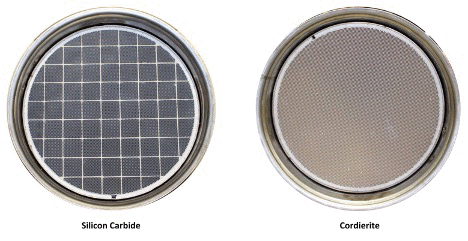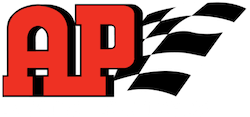FAQS
Durafit diesel particulate filters and diesel oxidation catalysts are available for a wide variety of 2007 and newer diesel engines. The current availability is listed in the line sheet or the Durafit website catalog lookup. Durafit also offers a full range of heavy, medium, and light-duty exhaust products that cover almost every truck, bus, and van in operation today.
Durafit diesel particulate filters and diesel oxidation catalysts are sold, installed, and supported through a network of specialized distributors across North America. Check the where to buy page to find the distributor in your area.
The most direct way is to enter the OEM part number in the search field on the Durafit catalog Page to find the correct replacement Durafit diesel oxidation catalyst or diesel particulate filter. You can also try searching by engine model by the manufacturer. Contact your Durafit distributor if you need further assistance.
Durafit has no minimum order rules, but your local distributor might. Check the where to buy page to find the distributor in your area.
No. Durafit diesel particulate filters and diesel oxidation catalysts are sold, installed, and supported through a network of specialized distributors across North America. Check the where to buy page to find the distributor in your area.
If you are interested in becoming a Durafit distributor, Contact Durafit at info@durafit-exhaust.com for more information.
Durafit diesel particulate filters and diesel oxidation catalysts are backed by a 3-year, unlimited mileage warranty.
Go to the Warranty registration page and fill in the electronic warranty form. In minutes your warranty is registered to you by product serial number. Lost the receipt? No problem we have you covered as long as you registered at the time of purchase. How’s that for peace of mind?
Fuel and oil contain inorganic additives to help protect your engine and extend the life of the oil. During the combustion process, they are turned into ash, which collects in the diesel particulate filter over time. Unlike the black carbon and soot in the exhaust, which is reduced during the regeneration process, the ash can only be removed by a cleaning device. This requires the diesel particulate filter to be removed from the engine. The cleaning interval varies for each engine manufacturer (and sometimes between engines from the same manufacturer) and can be found in your vehicle’s service guidelines. You should follow the engine manufacturer’s recommended cleaning intervals for your Durafit diesel particulate filter just like you would for the original diesel particulate filter.
Note that the amount of ash is directly related to the amount of oil an engine consumes. High oil consumption or high hours of service means more ash in the diesel particulate filter and may require more frequent cleaning.
The Durafit diesel particulate filter is designed to be an exact replacement for the OEM part, so you maintain the Durafit diesel particulate filter just like you maintain the OEM diesel particulate filter. Refer to the OEM service documents for instructions and cautions.
A network of diesel particulate filter cleaning services has developed since diesel particulate filters became standard equipment on trucks and buses. Some Durafit distributors also have cleaning services, so your Durafit distributor would be a good starting point to find a reliable cleaning service.
You can only if you use a filter cleaning machine that is approved by the OEM. (Despite what you see on YouTube; garden hoses, pressure washers, and other household cleaners are not recommended.)
No, unless diesel oxidation catalyst maintenance is specifically called out in your engine’s maintenance instructions.
In recent years, some OEMs have started to use a different type of diesel particulate filter material in their heavy-duty aftertreatment systems. Since Durafit matches the OEM design, our diesel particulate filters use the same type of filter material.
These diesel particulate filters are made from a material called Silicon Carbide (sometimes abbreviated as SiC, its chemical formula). It differs from the more common material (cordierite) in color and how the filter is assembled. Silicon carbide is dark gray and the diesel particulate filter is almost always a collection of smaller pieces that are cemented together, often in a checkerboard pattern. In contrast, a cordierite diesel particulate filter is typically tan and built as a single continuous cylinder. The photos below illustrate these differences.

Unless the OEM specifies otherwise in their service documents, a cordierite filter must always be replaced by a cordierite filter, and a silicon carbide filter replaced by a silicon carbide filter. Although both diesel particulate filter types provide nearly 100% PM reduction efficiency, the OEM’s regeneration strategy and fault codes are designed around a particular material, so switching materials without OEM authorization could cause undesirable effects.
A poorly maintained engine lowers your fuel economy, increases emissions, and shortens the life of your engine and emissions critical components such as the diesel particulate filter and diesel oxidation catalyst. Deferred or neglected maintenance items may include the following: restricted air filters, stuck EGR valves, faulty fuel injectors, faulty turbochargers, and degraded charge air coolers.
Regular vehicle, engine, and after-treatment maintenance, (including the diesel particulate filter), will yield more vehicle “uptime,” with reduced operating costs, and maximize your return on the investment that you made in the vehicle
As an engine runs, the diesel particulate filter collects solid particles called particulate matter (“PM”) which consists of carbon, unburned fuel, and oil, the ash from fuel and oil additives, as well as any other contaminants from the exhaust. Over time, the diesel particulate filter will fill with PM. The process of removing the combustible part of the PM (the carbon, unburned fuel, and unburned oil) is called “regeneration.”
Under driving conditions with the engine producing high exhaust temperatures – on a highway or pulling a heavy load – the catalytic coatings on the diesel particulate filter and diesel oxidation catalyst are sufficient to keep the diesel particulate filter clean. This cleaning process that takes place without any activity by the engine is called “passive regeneration.”
When the exhaust temperature is not sufficiently high, the vehicle’s exhaust system relies on auxiliary fuel injection to raise the temperature of the diesel particulate filter to a level at which most of the PM is oxidized. This process is actively controlled by the engine‘s controller and is therefore called “active regeneration.” The active regeneration occurs periodically and is not noticeable to the driver. Numerous sensors on the engine and exhaust system provide input to the engine‘s controller so it can trigger and control the process.
Forced regeneration is an active regeneration that is initiated by the operator when the vehicle is standing still. During the process, the engine controller modifies the engine speed, intake air flow, EGR rate, and other functions to allow the diesel particulate filter temperature to reach a suitable temperature. Consult your engine or vehicle owner’s manual for details.
In most cases, your vehicle relies on both passive and active regeneration to keep the diesel particulate filter clean and the vehicle operating normally.
Extended periods of idling shorten the lifetime of your engine, consume fuel unnecessarily, and load up the DPF with particle material. This will generally trigger active regeneration events, consuming even more fuel and putting greater thermal stresses on your aftertreatment system.
In addition, some states, private entity properties, and many municipalities have strict anti-idling laws or policies.
STILL HAVE QUESTIONS?
Get in touch with us by submitting an inquiry though our contact us page.





